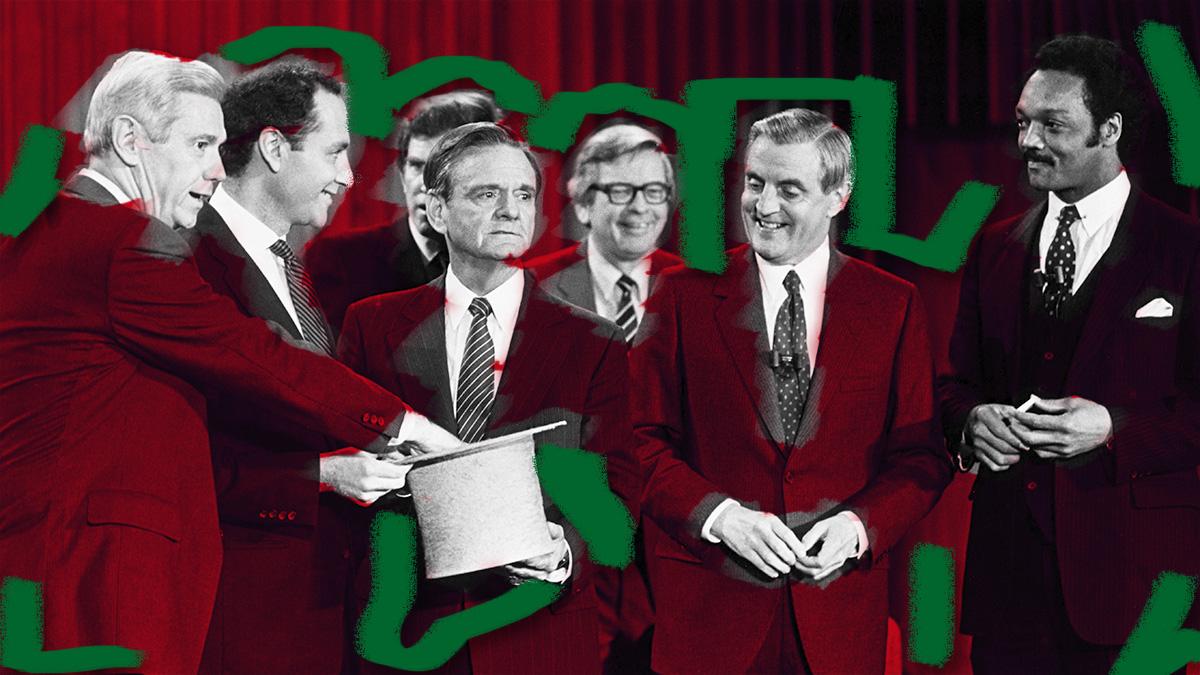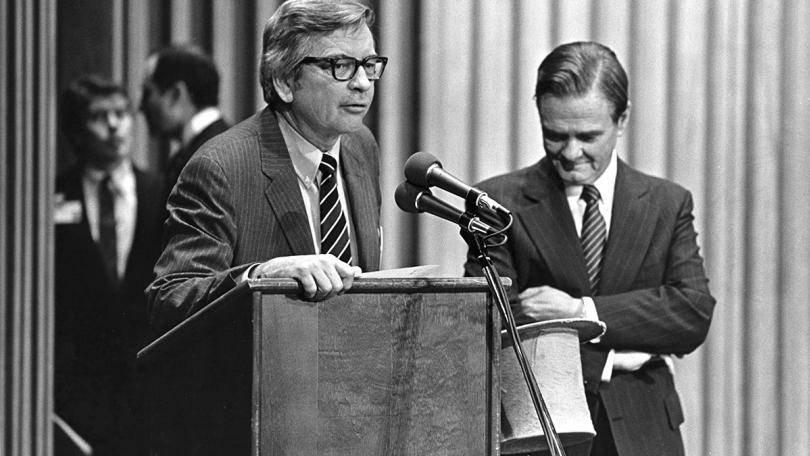1984 Debate: What Makes a Presidential Candidate?

What Makes a Presidential Candidate?
"Reporter Martin Schram of the Washington Post, anxious to determine who came out ahead in Sunday's three-hour televised debate featuring the eight Democratic presidential candidates, did his research at Bentley's, a pub on Main Street in Hanover, N.H. The verdict among the debate-watching tipplers: Ted Koppel." — The Advocate (Victoria, TX), January 17, 1984.
For many, the 1984 Democratic presidential candidate debate was most memorable for the mutual recriminations of Senator John Glenn and Vice-President Walter F. Mondale — "gobbledygook" and "baloney" — as they characterized each other's positions. Some commentators raised questions about the tone of the debate and whether the candidates had comported themselves in a presidential manner. Others opined that the real winner that night was nowhere near the stage in Hanover: President Ronald Reagan. In a crowded presidential primary field, Jesse Jackson, an ordained minister and long-time political activist, stood out as the sole African-American and the only candidate not to have held elected political office.

Frank Smallwood of the Rockefeller Center (l) with Daniel Webster's hat and Representative Gillis Long (D-LA)
At the time of the debate, there were eight major candidates:
- The Reverend Jesse Jackson
- Governor Reubin Askew of Florida
- Senator Alan Cranston of California
- Senator John Glenn of Ohio
- Senator Gary Hart of Colorado
- Senator Ernest F. Hollings of South Carolina
- Senator George McGovern of South Dakota
- Vice-President Walter F. Mondale
Seven were white. Four were sitting senators. Four were lawyers. Two were known as "Fritz" to friends and relatives. All were men.
Reverend Jackson was also a relative latecomer to the field in his first presidential bid and largely unknown to voters. Dartmouth students, faculty, and staff gave Jackson an enthusiastic reception at an on-campus speech the night before the debate and his debate performance was widely regarded as successful. Commentators noted his command of issues, call for civil debate, and manifest composure. After the debate, Jackson replaced Senator Glenn as the principal challenger to the front-runner Vice-President Mondale for the Democratic nomination.
